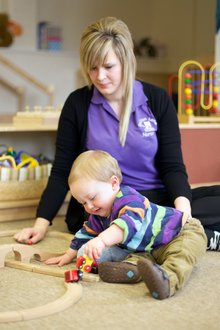Healthy communication in families is not a given, especially today, in the digital world. With ever increasing screen time, the ability to communicate and listen to others face-to-face is getting lost. The ways that people communicate with others can vary greatly. Some shout to get their point across, some talk over other people, some are passive-aggressive, some are reticent to talk – maybe shy, or think they don’t have anything of value to say.
Some of us, especially of an older generation (like me), may have had parents that were ready to criticise and single out what they perceived as negative behaviour – “You’re always hitting”, “Stop whining”, “Can’t you just behave, like other kids?!” They did this not because they were horrible, nasty or bad parents – mostly because it’s how they had been parented themselves. It’s what they knew. But this negative input can lead to a lifetime of poor self-esteem and a disjointed view of who we are as individuals.
I feel that if we are to try and stop the growing numbers of adolescents and adults developing anxiety and mental health issues – it must start in the home. If we stop focusing on behaviour – and instead look at feelings, then we would better be able to open up healthy communication and promote well-being in our children.
I’m going to give you three things that you can do right now that will help improve communication with your child:
1. Ask questions
When we ask our children questions like “How are you feeling?”, “What do you think the reason is?”, “Why do you think that happened?”, we are letting our children know that we trust them, value them and that we are listening. Three things that are great for their self-esteem.
2. Give choices
The term helicopter parent is used quite widely now. We all know someone who flies to their child’s aid at the first whiff of a problem – be it at school, with a friend, at Beavers. I can see why – none of us like to see our children upset or troubled. My advice? Don’t be a helicopter parent and try to sort out every problem yourself – you’re not doing your child any favours in the long term.
Instead, if we ask our children, “What could you do to change this?”, ”What do you think you might try, to make this better?”, we are then helping our child to be confident, take some responsibility and develop skills in making choices. Skills in making the right choices, while they are young. So that instead of staying in a bad place, they can make choices to help them move to a good place. That’s a huge life skill right there! How many of us adults find that hard? How many adults stay stuck in a bad place, because they haven’t got the confidence or the skills to choose a way out, a change, something different?
3. Say "Sorry"
So, I come home from a horrible day at work and I’m tired, stressed, angry with my colleague, or my boss. My child won’t sit for dinner/doesn’t want to have a bath/is being noisy/won’t go to bed. I shout and lose my patience and blame it on their behaviour. What has my child learnt from this? That it’s OK to blame your emotions on others. Instead, what I need to do is say – “I am so sorry I shouted. Everyone makes mistakes, but I’m sorry I upset you. It was wrong.” Here, they learn that it’s human to make mistakes – but the right thing to do is apologise for it.
And the best part is, these tips don't just work for communicating with children - they're also great reminders for any relationship that you value!
Written by Jo Fitzgerald, early years teacher and founder of Tiny Sponges. This article originally appeared on the Tiny Sponges blog.
Where next?
Read to your child for National Storytelling Week 2018







